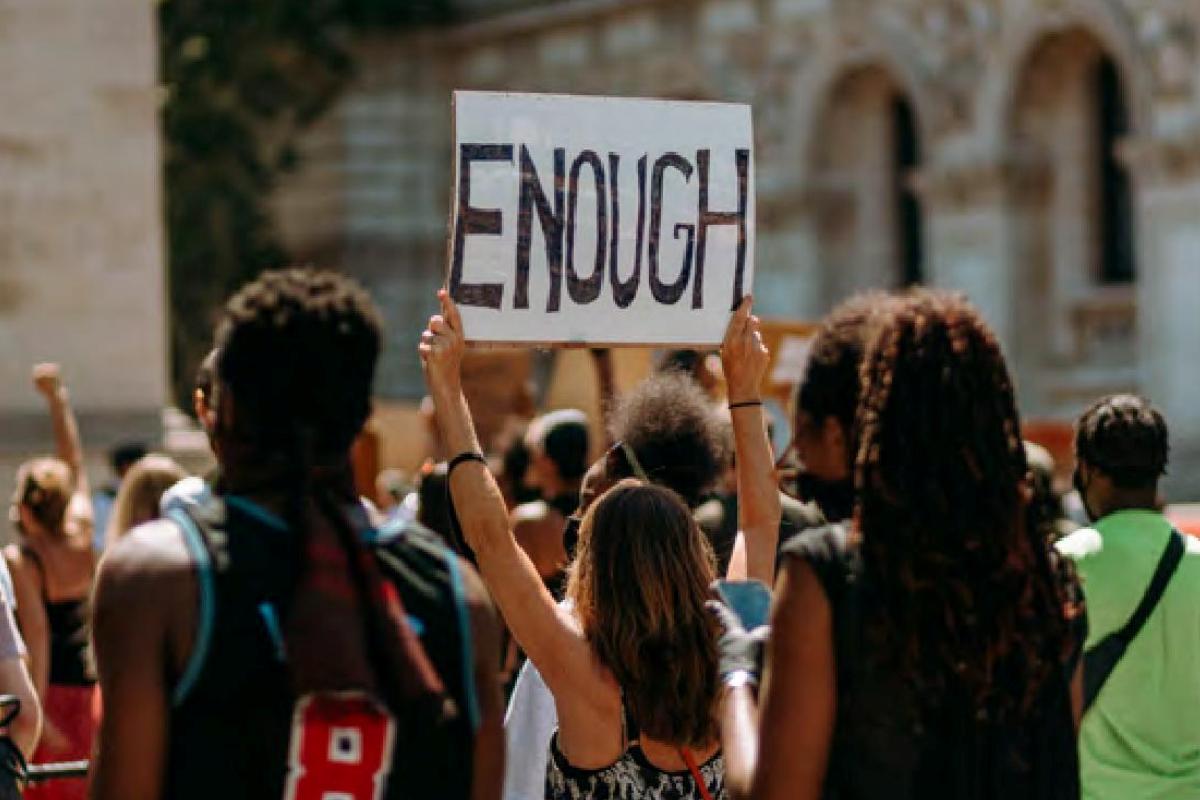
New Report Highlights Social Ramifications of Campus Policing
A new report written by Pullias Center researchers tackles the institutionalization of policing in higher education campus safety and management.
By providing administrators with important perspectives, key takeaways, reflective questions, and specific recommendations, Campus Policing: A Guide for Higher Education Leaders acts as a guide for higher education leaders looking to proactively respond to issues of policing and racism on university campuses.
Due to the recent calls across the country for the defunding of police, university administrators can no longer passively maintain campus police departments without seriously taking into consideration campus constituents’ feedback. Until now, there have been few resources to guide higher education leaders as they redevelop policies and practices.
The report draws upon media coverage as well as data from the federal Survey of Campus Law Enforcement Agencies and National Center for Education Statistics to shed light on the social ramifications of campus policing and assist higher education leaders as they critically examine how to manage their respective departments.
“Our goal was to create a resource for campus leaders to examine and evaluate the role of policing on campus, particularly in light of concerns related to racial equity and inclusion” notes Jude Matias Paul Dizon, who co-wrote the report alongside fellow Pullias Center research assistants Maritza E. Salazar, Elif Yucel, and Edgar Fidel Lopez.
“It is important for campus leaders to avoid adopting a colorblind perspective on campus policing that doesn’t consider its impact on racial equity,” cautions Adrianna Kezar, Director of the Pullias Center. “This report can empower and prepare leaders to begin addressing the needs of their overall campus communities in general and racially minoritized students, faculty and staff in particular.”
The report includes a sequence of recommendations for higher education leaders to draw from simultaneously as the demand for restructuring of campus policing arises. The authors develop a range of recommendations from advising on identifying the “upper bounds” for campus policing, aligning campus policing with an assessment of safety needs within the campus community, examining/addressing how racism is embedded into campus policing, divesting from campus policing into resources for student wellbeing, and abolishing campus policing to create new campus structures for campus safety.
“The management of campus policing moving forward must be attentive to what is legally mandated” the report’s authors note in the document’s recommendations. “At the same time, leaders need to examine the gray areas in order to be on the cutting edge with equitable and race-conscious approaches to campus safety.”
Download the report from the Pullias Center. Visit the Pullias Center’s Racial Equity in Higher Education page for more information and resources related to racial equity and justice.